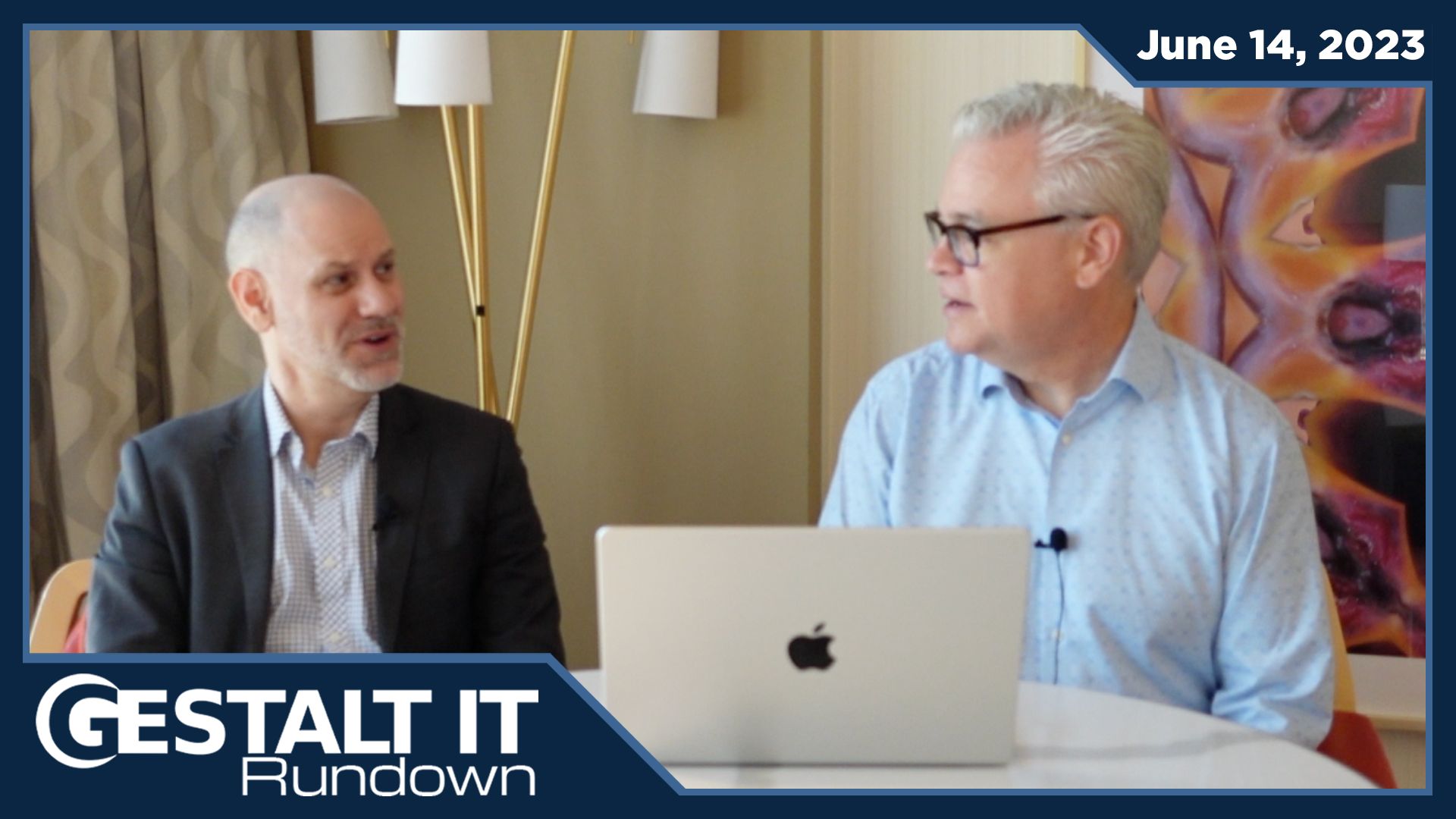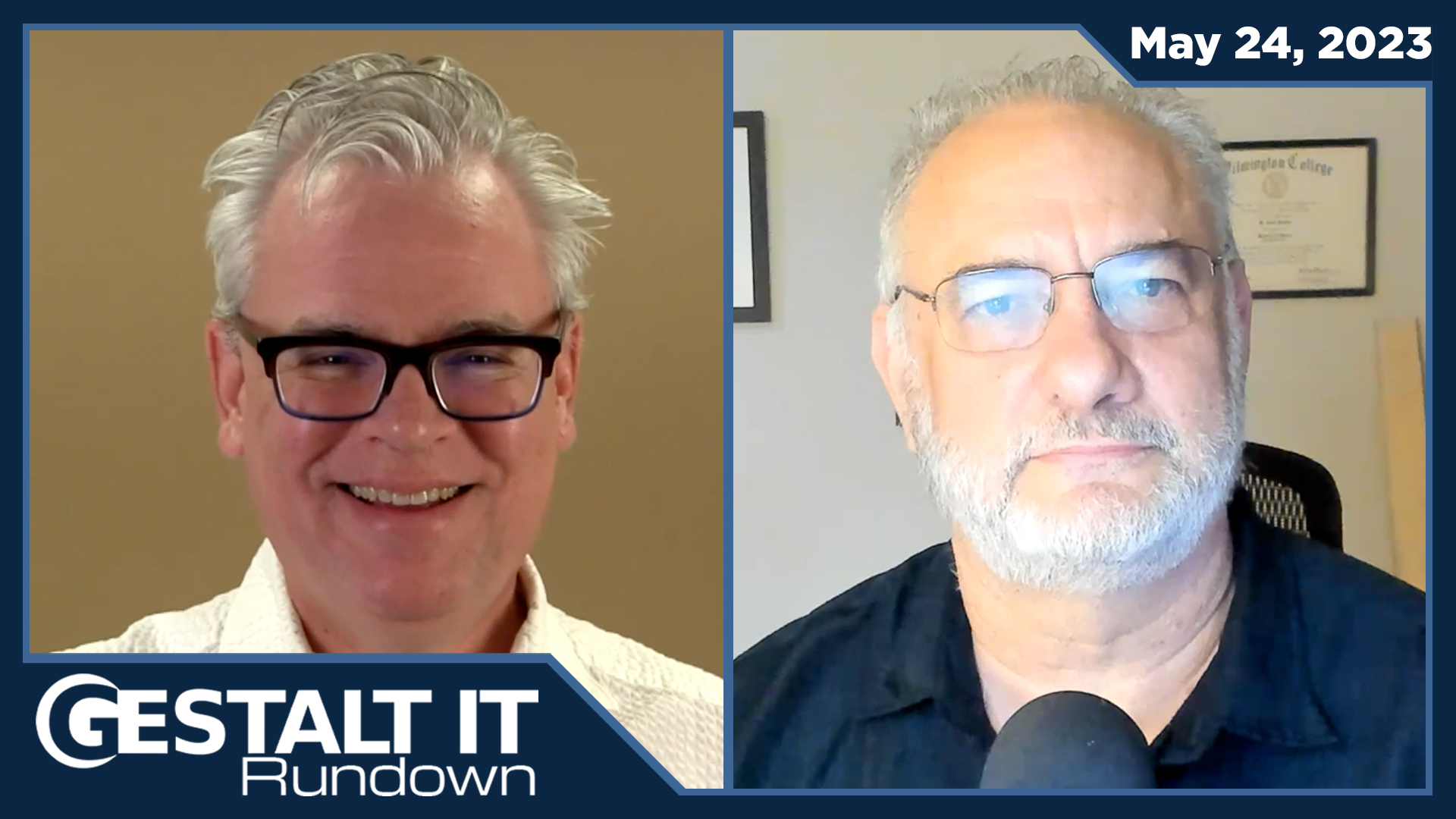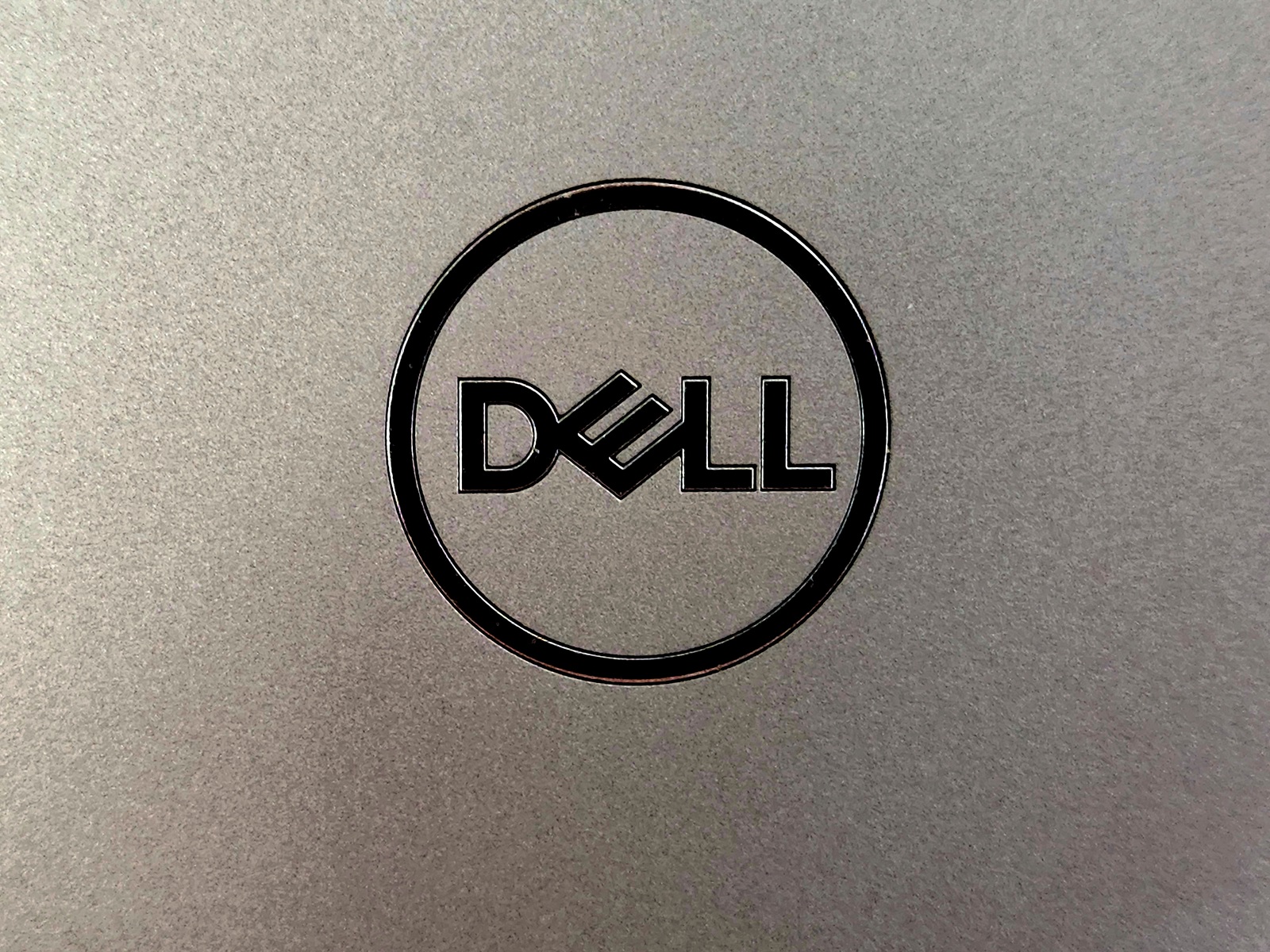Dell Technologies and AMD are at the forefront of high-performance computing (HPC), driving innovation in various fields, such as space exploration, wildfire prevention, and neuroscience research. Their HPC solutions are in high demand, revolutionizing industries by accelerating productivity, enabling faster market entry, and offering energy-efficient infrastructure modernization. Dell’s PowerEdge servers, equipped with the latest AMD 4th Gen EPYC™ processors, provide accessible and easy-to-deploy high-performance solutions for partners serving customers of all sizes, emphasizing optimization for maximum performance right out of the box. This and more on the Gestalt IT Rundown.
0:50 – Intel makes Foundry Deal with Tower after Acquisition Falls Through
Intel’s contract manufacturing division, Intel Foundry Services, has secured a deal with Tower Semiconductor to provide foundry services and capacity after Intel’s failed attempt to acquire Tower. Tower will utilize Intel’s 300mm wafer manufacturing capacity in New Mexico, expanding its fabrication capabilities for advanced analog chips in power management and radio frequency. The deal represents Intel’s strategy to leverage its global factory network to help companies enhance capacity across different regions, following the termination of the acquisition agreement due to approval challenges. Is this a set back for Intel or do they have a plan B?
Read More: Intel Inks Foundry Deal With Tower After Acquisition Deal’s Collapse
2:48 – The Edge is Paying Off for HPE
HPE is undergoing a transition from selling hardware to subscription-based models, leading to mixed results in its fiscal Q3 2023. While the overall revenues in the quarter increased slightly to just over $7 billion, HPE’s core ProLiant server business is in decline as server buyers are cautious about the economy and reluctant to invest in new hardware, even with new processors from AMD and Intel. HPE’s Intelligent Edge business, driven by the successful acquisition of Aruba Networks, saw significant growth, contributing to the company’s overall operating profits, but the Compute and Storage divisions are experiencing a slower period. Does this mean the Edge is here to stay this time?
Read More: The Edge Propels HPE While Datacenter Taps the Breaks
5:06 – Rubrik to Pursue IPO
Rubrik has reportedly enlisted seven additional banks to assist with its IPO, in addition to the three previously disclosed underwriters including Goldman Sachs, Barclays, and Citigroup. The company, whose investors include Microsoft and various venture capital firms, has been steadily growing its software subscription annual recurring revenue, reaching over $500 million in January, up from $400 million in August 2022. Its CEO, Bipul Sinha, has expressed the company’s readiness to go public when the time is right. Is this a good move for Rubrik?
Read More: Rubrik Plans To Pursue IPO In 2023: Report
7:33 – New Extortion Approach Threatens GDPR Fines
One of the more innovative parts of our industry has been by the ransomware gangs. What started with holding encryption keys for a ransomware has morphed into a series of extortion schemes, the latest of which appears to be demands to pay for protection from GDPR fines. Is this new tactic really going to work?
Read More: Pay our ransom instead of a GDPR fine, cybercrime gang tells its targets
11:06 – Huawei Expands Portfolio with 5-in-1 Scale-Out All Flash Array
Huawei has launched the OceanStor Pacific 9920, an all-flash array with a scale-out design and various configurations, powered by either Arm-based Kunpeng 920 processors or Intel Xeon SP CPUs. The system offers up to 20GBps bandwidth and supports various storage access protocols, including NFS, SMB, and S3. Additionally, Huawei’s OceanStor software suite includes smart application-aware compression and ransomware protection features, allowing it to detect ransomware attacks and recover data from an isolation zone using secure snapshots in a WORM file system.
Read More: Huawei adds 5-in-1 scale-out all-flash array to portfolio
14:06 – HashiCorp Licenses and Software Change
HashiCorp has transitioned to the Business Source License to maintain a balance between open source principles and commercial interests. The BSL permits open-source use and derivative works but imposes restrictions on commercial use, preventing companies from creating clones of HashiCorp’s platform or offering it as a cloud service without negotiation for a commercial license. This shift aims to protect HashiCorp’s intellectual property and commercial viability while fostering an open-source community. Is this a smart move?
Read More: HashiCorp Retools Licenses and Software to Grow its Business
18:21 – Private and Public Cloud Improved by Quantum
Quantum is enhancing its data infrastructure products to simplify the movement of backup, file, and object data between private cloud and public cloud environments. The company has introduced DXi CloudShare, FlexSync 3, and ActiveScale Cold Replication to enable the transfer of unstructured data for various purposes, including tiering, retention, and integrated public-private cloud workflows. These enhancements aim to provide customers with greater flexibility in managing their data across the entire data lifecycle, fostering hybrid cloud workflows tailored to their unique requirements and objectives. What do you think of this?
Read More: Quantum improves private-public cloud data integration
21:19 – Windows beta indicates the end of TLS 1.0 and 1.1
Back in 2008, TLS version 1.2 was officially published. Ten years later, TLS 1.3 was published. Since then, the industry has pretty heavily turned against TLS 1.0 and 1.1. Microsoft has recently reminded users that future versions of Windows will disable these older versions by default. While they will be able to reenable the older encryption algorithms manually, is this finally the nudge the industry needs to move to the more secure versions?
Read More: Microsoft calls time on ancient TLS in Windows, breaking own stuff in the process
Read More: Microsoft reminds users Windows will disable insecure TLS soon
24:21 – Dell and AMD Partner for Accessible High Performance Computing
Dell Technologies and AMD are at the forefront of high-performance computing (HPC), driving innovation in various fields, such as space exploration, wildfire prevention, and neuroscience research. Their HPC solutions are in high demand, revolutionizing industries by accelerating productivity, enabling faster market entry, and offering energy-efficient infrastructure modernization. Dell’s PowerEdge servers, equipped with the latest AMD 4th Gen EPYC™ processors, provide accessible and easy-to-deploy high-performance solutions for partners serving customers of all sizes, emphasizing optimization for maximum performance right out of the box. What do you think of this partnership moving forward?
Read More: Dell And AMD: Powering HPC-Driven Innovation
27:08 – The Weeks Ahead
SNIA SDC and Storage Field Day 26 – September 18-21, 2023
Edge Field Day 2 – October 4-5, 2023
Cloud Field Day 18 + OCP Summit – October 18-19, 2023
The Gestalt IT Rundown is a live weekly look at the IT news of the week. Be sure to subscribe to Gestalt IT on YouTube for even more weekly video content.




